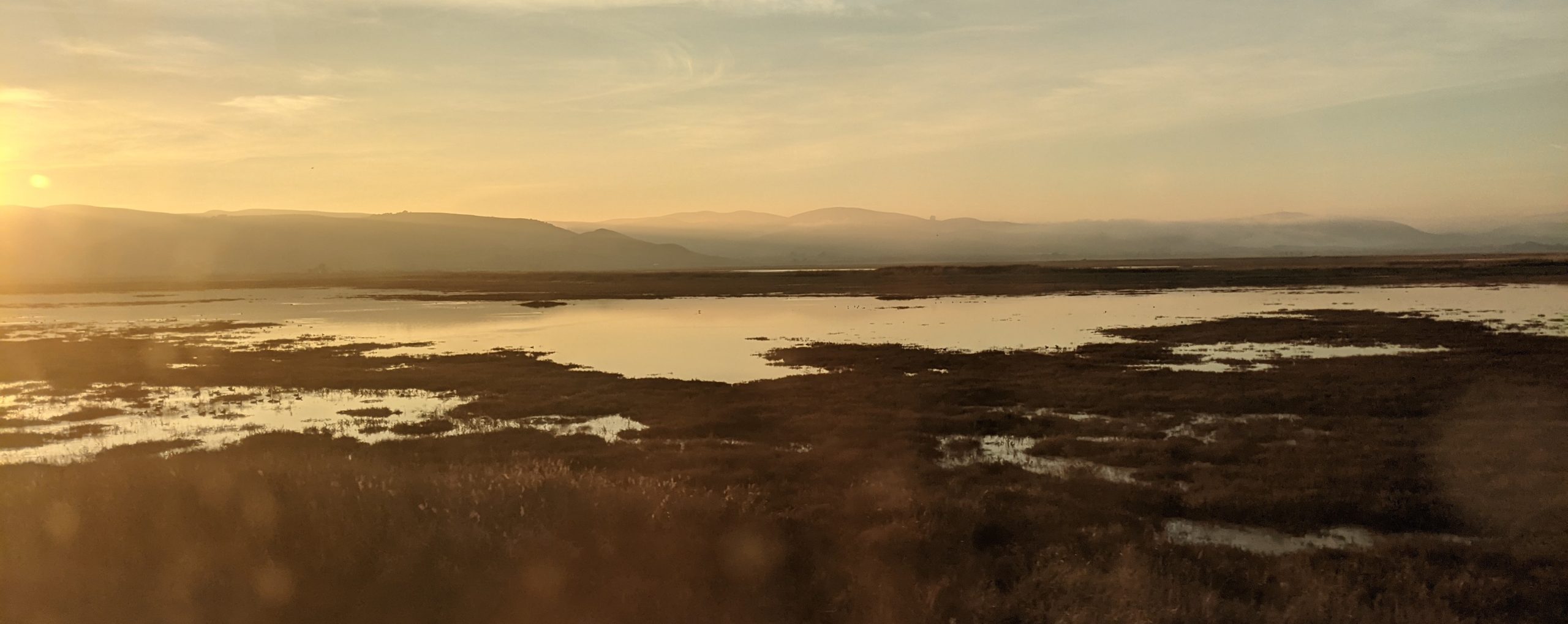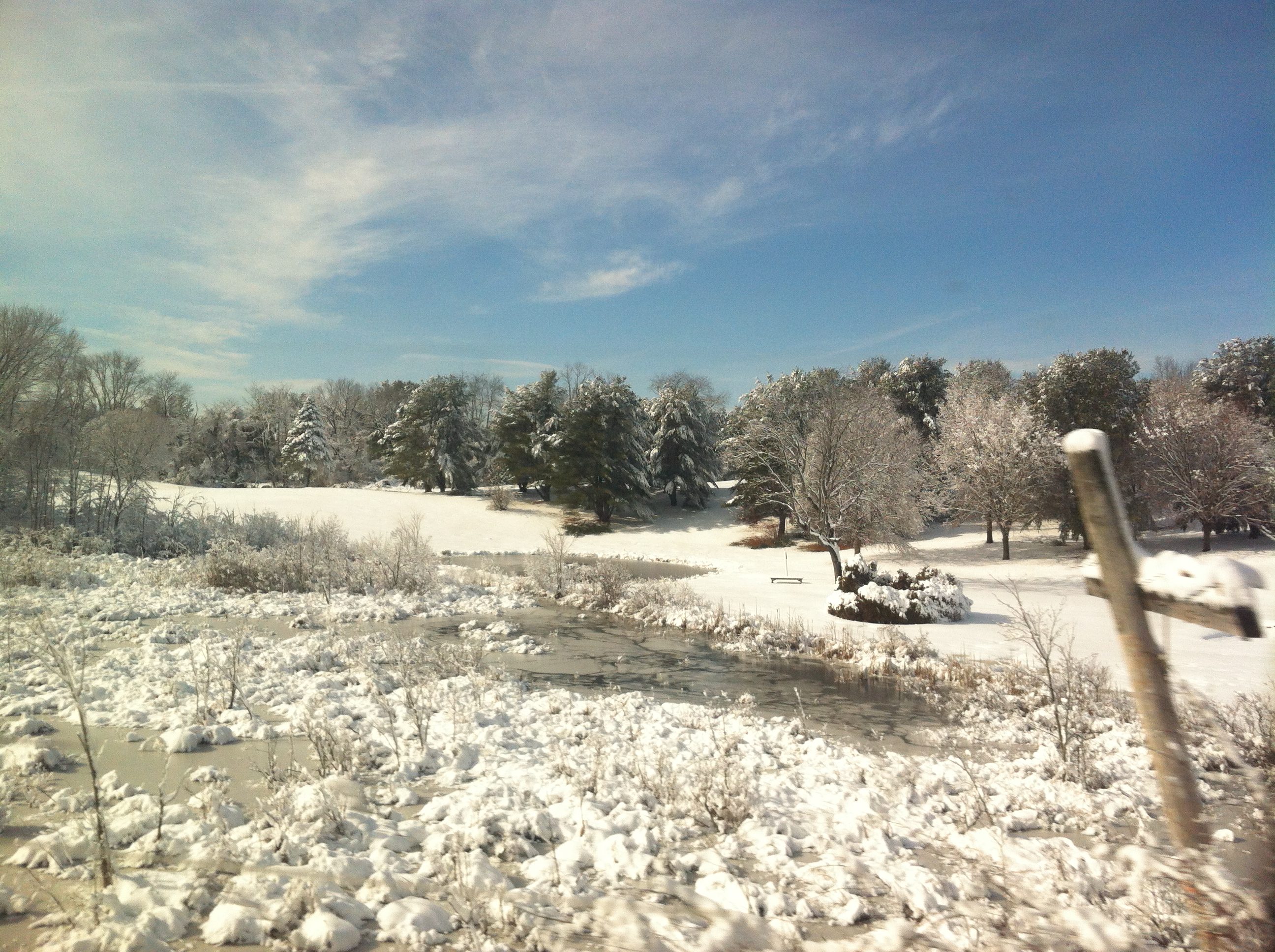I lost my religion in midwinter. What I wrote that night sounds incongruously spiritual:
“Today at midnight I had this unexpected, strong, desire to read a specific book… I walked through the basement and entered the library, and the first room I went into was empty, and the book was there…I am reminded of all that is good in the world.”
But when I read the book, I wheeled into mostly-rejecting everything I’d believed was True. (I may go into more detail about the why in some future post. I have a 5000-word treatise somewhere). I’ve been told the way I interpreted the book was wrong, a product of the borderline-fundamentalist missionary stories of my youth. But I had been through more nuanced understandings of Christianity since then. And even if I was wrong, Endō’s Silence had only been the tipping point for something a long time coming.
Two months later, I signed on to move to Zambia for two years. People asked me if I was going to come home afterwards. And I began to realise I no longer had one.
***
It’s hard to grasp, for people in my generation who were raised without religion, what it means to lose your religion. In evangelical Christianity, a specific place, even the world itself, is not your home. This was easy for me to believe: by elementary school, I had lived in a dozen houses on three continents.
But in Christianity, what can be a home on our temporary journey on earth is the community of believers. As my parents’ particular brand of evangelical Christian, I had a home anywhere in the world. The Christ I grew up with was a Christ for the whole universe. My favourite childhood memories are of lighting candles for Advent and singing hymns in English and Fijian and Latin. Nativity scenes from Scotland and Mali and the United States graced our shelves. My parents hosted people from dozens of countries who spoke dozens of languages. And I knew that we always shared the most important thing in common, that this was the closest to home we could ever get on earth.
We prayed together and we served together. We took Jesus’ care for those less fortunate seriously and fought racial and socioeconomic and spiritual injustices in our communities. We cooked for families in the community who had recently had loved ones pass away. We prayed for the loved ones we worry are going to hell. We debated the role of women in the church and in society. We discussed what it means to include (or exclude) “same sex attracted” people in our community. We studied the scriptures together daily and read the thinkers and theologians of the past. We volunteered at the homeless shelter together. We donated to missionaries together.
***
I’ve now lived away from the US for two years. People still ask me about when I’m going home. Or whether it’s difficult to be so far away from home. To the secular, it sounds melodramatic to say “I lost my religion and now I have no home to go back to”. But if you have no place to return to, and if the core of culture and community is believing some idea of the Truth, once you no longer believe in that Truth, the rest crumbles.
We worshipped the same God, Father, Son, and Holy Spirit. We sang the same songs and speak the same language beyond language. We meditated on the same Word. We were assured of the communion of saints, the forgiveness of sins, the resurrection of the body, and the life everlasting.
I still visit Christian spaces. I can still go to Lusaka or Landour and sing the same songs I grew up with, fold seamlessly into the language of the church. I can keep up the charade over biscuits or cashew barfi, nodding and silently arguing, until someone asks “so what’s your spiritual life like?” or “how’s your walk with God?” I have learned to respond truthfully and civilly and smile sadly to mirror their pity. My parents, and the Bible, always taught me to be honest.
Compared to many once-Christians, I think I am lucky. I was able to begin my adult life far away from the community I’d left, a clean break. I was also lucky to begin this life in the development community, working and spending time with people searching for truth and meaning in a world and city full of wise and brilliant Hindus and Muslims and Christians and atheists. I am lucky to have been surrounded by people who believe that thought is not virtuous unless accompanied by action, people from a variety of spiritual backgrounds, or none, who are working, insofar as they can, to alleviate human suffering. On what they value on a practical level, my secular coworkers have more in common with my parents than many of the Christians I fellowshipped with in college.
***
In the end, the barrier that separates us is our understanding of Truth. I’ve been called hubristic more than once for admitting I do not know what or if Truth is, that maybe the best we can get is a Bayesian approximation. This, called hubristic by people who say they know they are going to heaven, and I’m not. Well, maybe, they fudge. You can’t really know. But I do know that Jesus is the Way, the Truth, and the Life.
“I’ve always wanted to know more about evangelical Christianity,” someone told me one Friday.
“Well first,” I said. “it’s probably not what you think”. And I told him about my parents. And I thought about how meditations on beauty and meditations on hell can coexist, deep belief in women’s roles and deep care for the environment, care for the material welfare of the poor and for their conversion, belief in a good God who is perhaps universalist and perhaps double-predestining. The reason I am where I am is because I was a Christian, but it is also the reason I can no longer go home.
“Sometimes, I’m afraid of hell.”
“Me too. But I decided I would rather go to hell if the alternative was worshipping an evil god for eternity.”
“But, practically, would you? What good are your moral ideals if you’re getting your fingernails constantly torn out?” He had a point.
Later he asked again, about hell, about heaven, about being saved. And would I know?
“You’ve come to the right person. I’m an amateur theologian. Some people can hook you up with weed dealers, but I can hook you up with salvation.”
Some, to me, would say blasphemy. Some would say God can work in mysterious ways. I am agnostic. I still carry the words of Christ on redemption, forgiveness, justice, and love. But that isn’t enough to be a Christian, and perhaps I was never enough, because the worst thing about losing my religion hasn’t been losing the hope of eternal life or Truth. It has been losing the temporal hope of somewhere, somehow, having a home.

